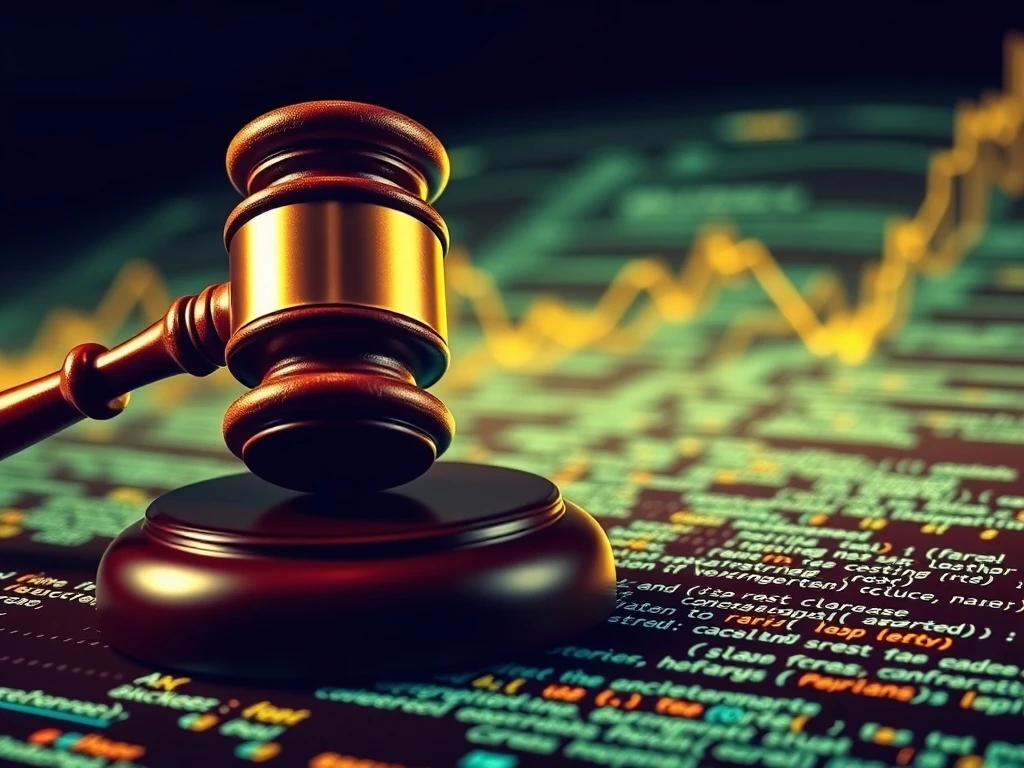DOJ Crackdown Faces Urgent Legal Battle Over Open-Source Code

The digital frontier of cryptocurrency is facing a pivotal moment as a coalition of powerful crypto groups stands united against a controversial DOJ crackdown on open-source software. This isn’t just a legal skirmish; it’s a battle for the very soul of decentralized innovation, with implications for every developer, user, and investor in the crypto space.
Why is the DOJ Crackdown Sparking Such Alarm?
The US Department of Justice (DOJ) is currently under fire for its aggressive interpretation of existing statutes, specifically Section 1960 of Title 18 of the US Code. This law, originally designed to target unlicensed money transmitters, is now being applied to developers of non-custodial, open-source code. Major industry players like Paradigm, the DeFi Education Fund, the Blockchain Association, and the Crypto Council for Innovation have filed an amicus brief, arguing that this approach fundamentally misunderstands how decentralized software operates.
At the heart of the dispute is Michael Lewellen’s case, where he developed a non-custodial DeFi protocol and plans to release it publicly. The crypto groups contend that the DOJ’s actions against developers who merely publish code, without ever taking custody of user funds, is a dangerous overreach.
How Do Money Transmission Laws Apply to Code?
The core argument from the crypto coalition is that money transmission laws require an entity to accept and relinquish control of funds on behalf of another. Non-custodial open-source software, by its very design, does not do this. The groups eloquently compare the DOJ’s stance to prosecuting a frying pan manufacturer for what someone cooks in their pan – the tool itself is neutral.
This misapplication of the law creates a chilling effect across the industry. Developers, fearing potential criminal prosecution, may hesitate to build crucial privacy-enhancing tools or innovative decentralized financial infrastructure. The brief warns that such an environment will inevitably push talent and innovation offshore, depriving the U.S. of leadership in this burgeoning technological sector.
The Crucial Role of Open-Source Code in Crypto Innovation
Open-source code is the bedrock of the crypto ecosystem. It fosters transparency, collaboration, and security, allowing anyone to inspect, verify, and build upon existing protocols. This collaborative model has driven much of the innovation we see in decentralized finance (DeFi) and beyond. The current legal uncertainty, fueled by cases like US v. Storm and US v. Rodriguez (involving developers behind tools like Tornado Cash), directly threatens this fundamental principle.
The ongoing prosecution of programmers for simply writing and publishing code, even if that code is later used for illicit activities by others, sets a concerning precedent. It undermines the very essence of software development, where tools are created for general use, not for specific, pre-determined applications.
Navigating the Complexities of Crypto Lawsuits
This lawsuit is not an isolated incident but part of a broader legal landscape shaping the future of crypto. Just recently, Coin Center’s appeal against the US Treasury Department regarding the Tornado Cash sanctions was dismissed, highlighting the ongoing regulatory challenges. While that case focused on sanctions, it underscores the government’s increasing scrutiny of crypto mixing services and the tools that facilitate them.
The current crypto lawsuit brought by Lewellen, supported by major industry advocates, seeks a declaratory judgment. This legal clarity is vital to safeguard neutral software development within the United States. Without it, the fear of prosecution could stifle the creation of essential infrastructure and privacy tools, pushing the industry’s cutting edge elsewhere.
The Future for DeFi Developers
The legal battle against the DOJ’s interpretation of money transmission laws for DeFi developers and open-source code is a defining moment for the crypto industry. It underscores the critical need for regulatory clarity that understands the nuances of decentralized technology. The outcome of this lawsuit will not only impact individual developers but will also set a precedent for how innovation is fostered, or stifled, in the digital age. As the crypto community watches closely, the hope remains that a clear legal framework will emerge, allowing the transformative potential of decentralized software to flourish without undue constraint.







